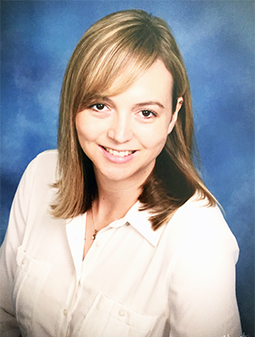Latest News Archive
Please select Category, Year, and then Month to display items
05 June 2018
Photo Supplied
 Archaeological excavations in the Wonderwerk Cave, north of Kuruman in the Northern Cape.
Archaeological excavations in the Wonderwerk Cave, north of Kuruman in the Northern Cape.
Research fellow Dr Lloyd Rossouw from the Department of Plant Sciences at the University of the Free State (UFS) recently published an article in the Nature Ecology and Evolution journal with Dr Michaela Ecker from the University of Toronto as lead author, and Dr James Brink, research fellow at the UFS Centre for Environmental Management. The findings described in “The palaeoecological context of the Oldowan-Acheulean in southern Africa” provides the first extensive paleoenvironmental sequence for the interior of southern Africa by applying a combination of methods for environmental reconstruction at Wonderwerk Cave, which have yielded multiple evidence of early human occupation dating back almost two million years ago.
Where water once was
The Wonderwerk Cave is found north of the Kuruman hills (situated in Northern Cape) a 140m long tube with a low ceiling. The surroundings are harsh. Semi-arid conditions allow for the survival of only hardy bushes, trees, and grasses. But during the Early Pleistocene, stepping out of the Wonderwerk Cave you would have been greeted by a completely different site, the researchers found. Using carbon and oxygen stable isotope analysis on the teeth of herbivores (Dr Ecker), fossil faunal abundance (Dr Brink), as well as the analysis of microscopic plant silica remains (phytoliths) excavated from fossil soils inside the cave (Dr Rossouw), the results show that ancient environments in the central interior of southern Africa were significantly wetter and housed a plant community unlike any other in the modern African savanna.
What difference does it make?
While East African research shows increasing aridity and the spread of summer-rainfall grasslands more than a million years ago, the results from this study indicate an interesting twist. During the same period, shifts in rainfall seasonality allowed for alternating summer and winter-rainfall grass occurrences coupled with prolonged wetlands, that remained major components of Early Pleistocene (more or less the period between one and two million years ago) environments in the central interior of southern Africa. That means our human ancestors were also living and evolving in environments other than the generally accepted open, arid grassland model.
Seasoned international pianist appointed at the OSM
2016-02-05

Dr Grethe Nöthling |
The Odeion School of Music is delighted to welcome Dr Grethe Nöthling as a new member of its dynamic performance faculty.
Dr Nöthling has been appointed as principal piano lecturer. She has won several national music competitions, and is the recipient of numerous awards and bursaries, including the University of South Africa overseas scholarship for teachers in 2003.
Musician and pedagogue par excellence
From 1989 to 2005, Dr Nöthling performed as soloist with all major South African Symphony Orchestras. She obtained a Bachelor of Music Degree (magna summa cum laude), specialising in Performance from the University of Pretoria under the tutelage of Professors Ella Fourie and Joseph Stanford.
She furthered her studies in the United States of America at the Cleveland Institute of Music where she received a Master’s of Music Degree in 2008 under the guidance of Daniel Shapiro and Paul Schenly.
Dr Nöthling obtained a Doctorate of Musical Arts Degree (2014) from the University of Iowa (UI) in the USA under Professor Uriel Tsachor. During her studies at the U of I, she was awarded a teaching assistantship, and performed with the university’s New Music Ensemble. During a ten-year residency in the USA, she has performed extensively as both soloist and chamber musician.
Inspiration for aspiring musicians
“It is my hope to be an inspiration for young and upcoming musicians both as pedagogue and performing artist. In order to consider the unique gifts and challenges of every individual student, I am of the opinion that is imperative to be very flexible and adjustable from a methodological and musical perspective,” said Dr Nöthling.